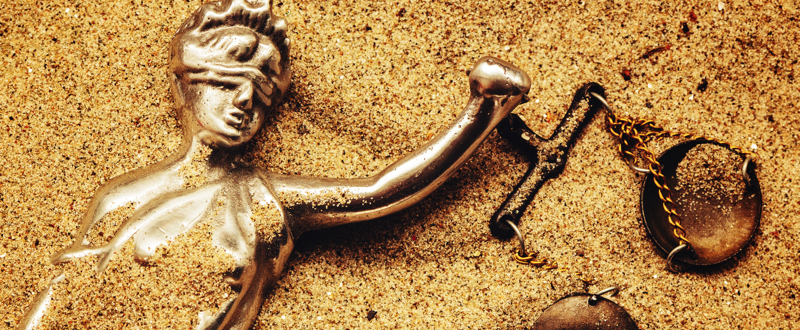
29 Nov JUROR: IMPARTIAL AND FAIR?

Margaret A.M. Heine
is the principal counsel at Heine Law Group in Fullerton, California. She is licensed in California and Washington and has authority to practice before the Supreme Court of the United States and the United States Court of International Trade.
Her practice includes estate planning, wills, trusts, and probate as well as business, real estate, and civil litigation. Email: nbylegas@gmail.com or visit company website www.margaretamheine.com.
JUROR: IMPARTIAL AND FAIR?
In the last of our series, the question is now whether or not you can be an impartial and fair juror. Can you set aside your personal views and feelings and apply the law—even if you disagree with the law, even if you dislike the prosecution, especially if you dislike the defendant?
Juries are supposed to be fair and impartial and apply the law in a non-discriminatory fashion. This means setting aside your personal feelings in order to render a decision consistent with the law.
Recalling parts of our prior articles: Could you find the person a murderer for accidently killing an unborn child when the mother was on her way to get an abortion? Could you enforce the law requiring that persons working in the United States must have legal immigrant status? Could you find someone innocent of a crime even if you really dislike the person? Could you fairly apply the law as you are instructed by a judge?
A juror is ideally impartial and willing to apply the law as the law is written. A juror may bring into the courtroom their own personal knowledge, but they cannot be investigators or researchers looking for evidence or information about the participants in the file. It is a common joke that we need jurors who have never read a newspaper or listened to the news in high profile cases. No, we simply need jurors who can set aside their personal beliefs and apply the law as they are instructed.
The process of jury selection is called ‘voir dire’. Prospective jurors are called to be interviewed by the lawyers for the parties in the case as well as the judge. Each party gets a certain number of jurors that they can dismiss without any explanation, and the judge gets exemptions also to dismiss a juror so that the parties do not utilize their exclusions.
The intensity of the questioning frequently depends on the severity of the case and what is at stake in the case. The attorneys and judge will try to determine if you have any biases or opinions which they believe mean you cannot be impartial and fair in the trial process.
Attorneys will also try to determine if you make a great juror for their case. For example, in a products liability case where a product fails and injuries occur; an attorney for the plaintiff might want engineers, quality inspectors, or other safety persons on the jury. The personal information that they would bring to the jury would help in having them understand the technical information and defects in the product that caused the injury.
Jurors are frequently asked if they have family members in law enforcement or family members who have served time in jail when the case is a criminal case. In a drunk driving case, the question may be have you ever driven under the influence or arrested for a DUI. The questions which are asked vary based on the case being presented.
Jurors, once chosen, will sit and take instruction from the judge in the case. The judge will outline acceptable conduct and what the law is that is to be applied in the case. The judge will also instruct the jurors as to the standards to be applied by them in evaluating the case and the verdict of the case.
A juror can be guilty of misconduct. Juror misconduct can be simple or complex. Generally, a juror cannot go on the internet and research issues, parties, or particulars of any case. If it is a high profile case, the jurors may be sequestered so that they cannot see the news, see newspapers, or be influenced by outside persons, and to protect the jurors from juror tampering.
Jurors cannot talk to witnesses, attorneys, bailiffs or judges about the case. They cannot take it upon them self to talk to people they know about what “they think of the facts”. You cannot go and take pictures of an intersection, a restaurant, the piece of equipment and then show it to other jurors or use it yourself in determining how you will decide a case. You cannot research medical conditions or illnesses including symptoms. You cannot conduct an experiment to see if the evidence “adds up”. These actions result in juror bias.
It is critical that you have an open mind when you start the trial—no preconceived decision as to the outcome or guilt of any party. If any juror misbehaves and does any of the forbidden things, it is likely that a mistrial will be declared as the jury has been tainted and tampered with, noting the inclusion of impermissible information.
Obviously, at the conclusion of the presentation of the case, the jurors get to discuss the case and apply the law as it is given to them by the judge. This is the only time it is permissible to discuss the case, and the only people you can discuss the case with.
Can you be impartial? Can you put aside your dislike or hatred for a particular policy or law and apply the law as it is written? Can you accept the definitions of terms as they are given to you by the court? Even if you disagree with the definition? Think about the discussion of viability of fetsuses, what constitutes a viable fetsus? Think about bribery, what constitutes receiving something in return for the bribe? Think about how it is against the law to hire undocumented workers, so how do you apply worker’s rights to those undocumented workers? Can you ignore evidence which was presented, but the court ruled it was inadmissible? For example, a gun was found by the police without a proper search warrant or a computer was taken and information was taken from it without a proper warrant—even if the evidence shows that the person is guilty—could you ignore hearing that evidence?
In civil cases, three fourths of the jurors must agree on the verdict. In criminal cases, the verdict must be unanimous. Each juror matters.
Apply the principles of fairness and impartiality in your daily lives. This doesn’t mean you can’t have an opinion, but in order to have a dialog, you must be able to see both sides of the coin, and understand what the law actually states. Only then, could you decide if the law should be changed or upheld.




Sorry, the comment form is closed at this time.